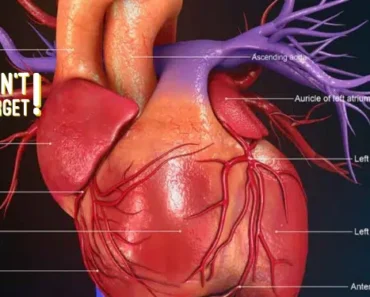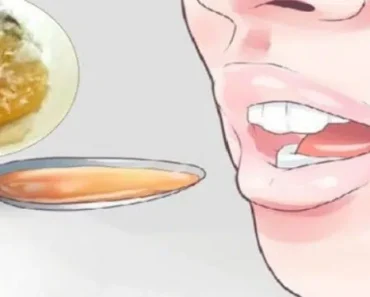They may be tiny, but sunflower seeds pack an incredible nutritional punch. These crunchy kernels, harvested from the bright faces of sunflowers, are among nature’s richest sources of vitamin E, healthy fats, protein, and essential minerals that support heart, brain, and skin health.
A Nutritional Snapshot: What’s Inside Sunflower Seeds
Every handful (about 1 oz / 28 g) of shelled sunflower seeds provides:
- Calories: 165
- Protein: 6 g
- Healthy fats: 14 g (mostly poly- and monounsaturated)
- Fiber: 3 g
- Vitamin E: 7 mg – nearly 40 % of your daily needs
- Magnesium, selenium, zinc, iron, and folate
Sunflower seeds also contain phytosterols, flavonoids, and antioxidants that combat oxidative stress – a root cause of aging and disease.
In short, they’re a nutritional powerhouse disguised as a snack.
1. They Nourish and Protect Your Skin from the Inside Out
If you’re chasing healthy, glowing skin, sunflower seeds deserve a spot in your diet. Their secret weapon is vitamin E, a potent antioxidant that shields skin cells from free-radical damage caused by pollution, UV exposure, and stress.
How it works:
- Vitamin E protects the lipid layer of your skin, keeping it soft, hydrated, and resilient.
- The antioxidants reduce inflammation that contributes to acne and premature wrinkles.
- Combined with healthy fats, sunflower seeds help lock in moisture, giving your skin a naturally dewy look.
Studies show that higher vitamin E intake is linked to smoother texture, improved elasticity, and reduced fine lines.
That’s why sunflower-seed oil is often used in moisturizers – eating the seeds gives you those benefits from the inside out.
2. They Boost Collagen and Fight Premature Aging
Collagen is the protein that keeps your skin firm and youthful. As we age, collagen production declines – but sunflower seeds provide the nutrients your body needs to slow that process.
- Copper and zinc in sunflower seeds aid collagen synthesis.
- Selenium protects skin from oxidative breakdown.
- Vitamin E and antioxidants preserve collagen structure by neutralizing free radicals.
Consistent consumption of sunflower seeds can help your skin maintain tone, firmness, and youthful resilience – naturally, without expensive creams.
3. They Support Heart Health and Lower Cholesterol
Your skin’s radiance begins with good circulation and a healthy heart. Sunflower seeds are loaded with heart-friendly fats, including linoleic acid and oleic acid, which improve cholesterol levels.
Key cardiovascular benefits:
- Reduce LDL (“bad”) cholesterol while raising HDL (“good”) cholesterol.
- Lower blood pressure thanks to magnesium and potassium.
- Improve blood flow, ensuring oxygen and nutrients reach your skin and organs efficiently.
A 2018 study in the Journal of Nutritional Science found that regular consumption of seeds and nuts like sunflower seeds can reduce inflammation markers linked to heart disease.
So when you snack on sunflower seeds, you’re not only supporting your skin – you’re also protecting your heart.
4. They Improve Energy and Metabolism
Feeling tired mid-day? A handful of sunflower seeds can provide a natural, slow-burning energy boost without caffeine or sugar.
The mix of protein, fiber, and healthy fats stabilizes blood sugar and keeps energy levels consistent. Meanwhile, B-vitamins (especially thiamine and niacin) help your body convert food into usable fuel.
Athletes and busy professionals alike use sunflower seeds to sustain stamina. Eating them daily supports a faster metabolism, better focus, and fewer energy crashes.
5. They Strengthen the Immune System
Your immune system thrives on minerals like zinc, selenium, and iron – all of which are abundant in sunflower seeds.
- Zinc helps your body produce infection-fighting white blood cells.
- Selenium boosts antioxidant defenses and supports thyroid function.
- Iron aids oxygen delivery throughout the body.
Together, these nutrients make sunflower seeds a perfect daily immune tonic, especially during cold and flu season.
6. They May Help Balance Hormones
Sunflower seeds are part of a popular wellness practice known as “seed cycling” – rotating different seeds throughout the month to support hormonal balance.
Sunflower seeds are particularly rich in vitamin E and selenium, both of which promote progesterone production and reduce symptoms of PMS or menopause such as fatigue, irritability, and skin breakouts.
While research is ongoing, many women report better mood stability and clearer skin when adding sunflower seeds to their daily meals.
7. They Soothe Inflammation Throughout the Body
Chronic inflammation is linked to nearly every major disease – from arthritis to diabetes – and it can also cause redness and puffiness in the skin.
Sunflower seeds contain:
- Vitamin E (anti-inflammatory antioxidant)
- Flavonoids and phenolic acids (plant compounds that calm cellular stress)
- Omega-6 and omega-9 fatty acids that help regulate immune responses
By reducing inflammation, sunflower seeds promote clearer skin, faster recovery from workouts, and lower risk of chronic illness.
8. They Support Healthy Blood Sugar Levels
Despite being energy-dense, sunflower seeds have a low glycemic index and are packed with fiber and protein – both of which slow the absorption of sugar into your bloodstream.
Eating sunflower seeds daily can:
- Help prevent blood-sugar spikes after meals.
- Improve insulin sensitivity.
- Reduce cravings for sweets and processed snacks.
For people managing prediabetes or type 2 diabetes, sunflower seeds make a satisfying, stabilizing snack that helps keep blood sugar under control.
9. They Enhance Hair and Nail Strength
Healthy hair and nails rely on the same nutrients that benefit your skin – and sunflower seeds deliver them all.
- Biotin and zinc strengthen hair follicles and prevent breakage.
- Iron supports oxygen flow to the scalp, promoting growth.
- Vitamin E and selenium prevent dryness and brittleness.
A small handful daily nourishes your beauty from the inside out, helping hair stay shiny and nails resilient.
10. They May Improve Mood and Reduce Stress
Sunflower seeds are rich in magnesium, a mineral often called “nature’s relaxant.” Magnesium helps regulate the nervous system, ease muscle tension, and balance serotonin – the “feel-good” hormone.
Low magnesium levels have been linked to anxiety, irritability, and insomnia.
By replenishing this vital nutrient, sunflower seeds can help you feel calmer, more focused, and emotionally balanced.
Their subtle crunch and nutty flavor also make mindful snacking easy – helping to reduce emotional eating or sugar cravings during stressful moments.
How to Eat Sunflower Seeds Every Day (Without Getting Bored)
Sunflower seeds are versatile, inexpensive, and easy to use. Try these ideas:
- Snack mix: Combine with almonds, raisins, and dark chocolate chips.
- Smoothies: Blend a spoonful into your morning drink for a creamy texture.
- Salads: Sprinkle roasted seeds for crunch and healthy fats.
- Oatmeal or yogurt: Add for protein and nutty flavor.
- Baking: Replace part of the flour in muffins or breads with ground sunflower seeds.
- Homemade spreads: Make sunflower-seed butter as an alternative to peanut butter.
How Much Should You Eat?
A small handful – roughly 1 ounce (28 grams) or 2 tablespoons of shelled seeds – each day is enough to enjoy their benefits without excess calories.
To keep them fresh, store sunflower seeds in an airtight container away from heat and light. Because they’re rich in natural oils, they can go rancid over time.
Choosing the Right Type of Sunflower Seeds
| Type | Best Use | Notes |
|---|---|---|
| Raw, unsalted seeds | Daily snacking and smoothies | Retain most nutrients. |
| Roasted seeds | For flavor and crunch | Slightly lower vitamin E but easier to digest. |
| Sprouted seeds | In salads and snacks | Higher enzyme activity and nutrient absorption. |
| Sunflower-seed butter | As a spread or dip | Look for versions with no added sugar or hydrogenated oils. |
Potential Side Effects or Precautions
Sunflower seeds are safe for most people when eaten in moderation, but keep these points in mind:
- Calorie-dense: One handful provides about 165 calories. Overeating can lead to weight gain.
- Sodium: Avoid heavily salted packaged seeds; excess sodium can raise blood pressure.
- Allergies: Rare, but possible. If you experience itching or swelling, discontinue use.
- Phytates: Raw seeds contain phytic acid, which can reduce mineral absorption. Soaking or roasting helps neutralize it.
Sunflower Seeds vs. Other Seeds
| Nutrient | Sunflower Seeds | Chia Seeds | Pumpkin Seeds | Flaxseeds |
|---|---|---|---|---|
| Protein | 6 g / oz | 4 g / oz | 7 g / oz | 4 g / oz |
| Vitamin E | Very high | Low | Moderate | Moderate |
| Magnesium | High | High | High | High |
| Omega-3s | Moderate | Excellent | Low | Excellent |
| Fiber | 3 g / oz | 5 g / oz | 2 g / oz | 4 g / oz |
Sunflower seeds stand out for their vitamin E content and skin-protective antioxidants, making them the top choice for natural beauty and anti-aging support.
Eating sunflower seeds every day might seem like a small change, but the impact on your body, energy, and skin health can be profound.






